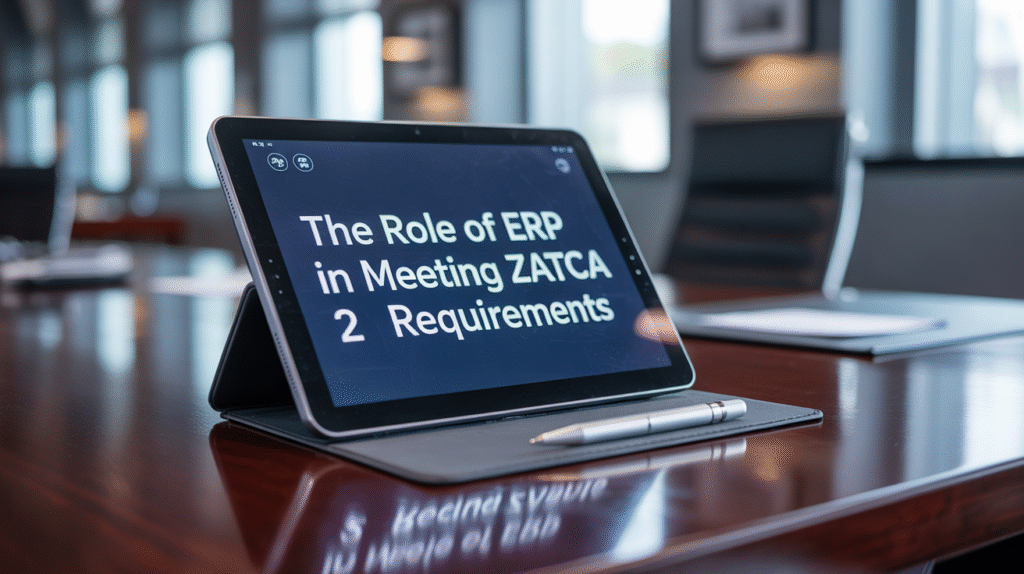The ongoing efforts to go digital in Saudi Arabia keep on with the gradual implementation of the e-invoicing program launched by ZATCA. Following the successful implementation of Phase 1, ZATCA (Zakat, Tax and Customs Authority) introduced Phase 2, also called the “Integration Phase” (the Phase 2), which requires businesses to directly connect their invoicing systems to the platform of ZATCA. To businesses on this transition, the best erp in saudia arabia (Enterprise Resource Planning) systems are crucial in fulfilling the technical and operational needs of Phase 2 as well as in streamlining tax and financial processes.
This is how ERP systems are becoming critical towards adhering to ZATCA Phase 2.
What Has Changed Understanding ZATCA Phase 2?
The second step of the e-invoicing project implemented by ZATCA is not only the creation of electronic invoices. It requires immediate integration between the e-invoicing system of a business and the platform Fatoora of ZATCA. Every invoice should be verified, stamped, and exchanged through the electronic means in the standard XML format. The threshold of compliance has been raised, and businesses are expected to implement certified solutions that have the capability of producing cryptographic stamps, handling UUIDs and offering end-to-end traceability of invoices.
This is where the ERP systems would give you a competitive edge.
Seamless ERP Solutions certified
ZATCA has announced stringent technical and security requirements of e-invoicing solutions. A large number of ERP vendors have already made changes to their platforms to suit these requirements and were integration certified.
Such ERP solutions also have APIs and middleware that are ready to be used and can integrate with the portal of ZATCA. This will make invoices be validated and recognized in real time, minimize delays, manual uploads, or rejections because of format mistakes.
Companies that utilize ERP do not need to concern themselves with the development of custom integration layers, the solution is in-built, tested, and extensively revised by the vendor.
Real time validation and invoice reporting:
Under ZATCA Phase 2, each invoice should be cleared in real-time by businesses. ERP systems are developed that way so as to enable this live interaction. Once a transaction is made, the invoice goes to ZATCA immediately through the integrated ERP system. The response to the platform of confirmation or rejection of the request takes seconds.
This on-line verification is essential to business survival. Its absence can result in invoices being considered non-compliant, affecting cash flow, relationships with vendors and preparedness of audits. This process is automatic and smooth with the help of ERP systems.
Improved Data Integrity and Security:
The Zatca e-invoicing Saudi Arabia Phase 2 also focuses on the use of secure cryptographic solutions to avoid tampering of invoices and authenticity. ERP systems today have the capability to facilitate these needs by providing digital certificate management and secure hash creation along with timestamping functions.
Through these cryptographic tools integrated into ERP, businesses are able to keep the integrity of invoices and uphold the highest form of security as required by ZATCA.
An efficient audit trail and record-keeping:
The other requirement under Phase 2 that is of importance is keeping of the invoice records with proper audit trails. All invoices in the ERP system are automatically stored with corresponding metadata in the form of times stamps, user actions, approval history, and ZATCA response codes.
Such an extensive audit trail makes compliance checks easy and makes businesses ready at all times when tax is audited or when they are called upon by the regulatory agencies.
Multi-branch and High-Volume Businesses Scalability:
Large organizations that have many branches or high transaction rates find it hard to comply with the ZATCA Phase 2. The advantage of ERP systems is that they are scaled to your needs, be it 100 or 100,000 invoices per month. They consolidate invoicing data between business units and make all branches follow the uniform standards of compliance.
Its usability is further boosted by multi-language support, capability to be localized and customized dashboards to suit different organizations with different sizes and areas of operation.
Read Also >>> How Young Can You Be to Start a Business? Smart Tips
Conclusion
The second phase of ZATCA has changed the way Saudi businesses should approach the process of invoicing, reporting, and tax compliance. It is not the matter of digitization anymore: the matter of real-time integration, standardization, and accuracy of data. ERP systems have become an inseparable part of this change, providing certified integrations, automated compliance, and top-security.
The implementation of a powerful ERP solution can help businesses to not only satisfy the short-term needs of the ZATCA Phase 2 but also to become a solid platform of regulatory success and digital transformation in the future.






